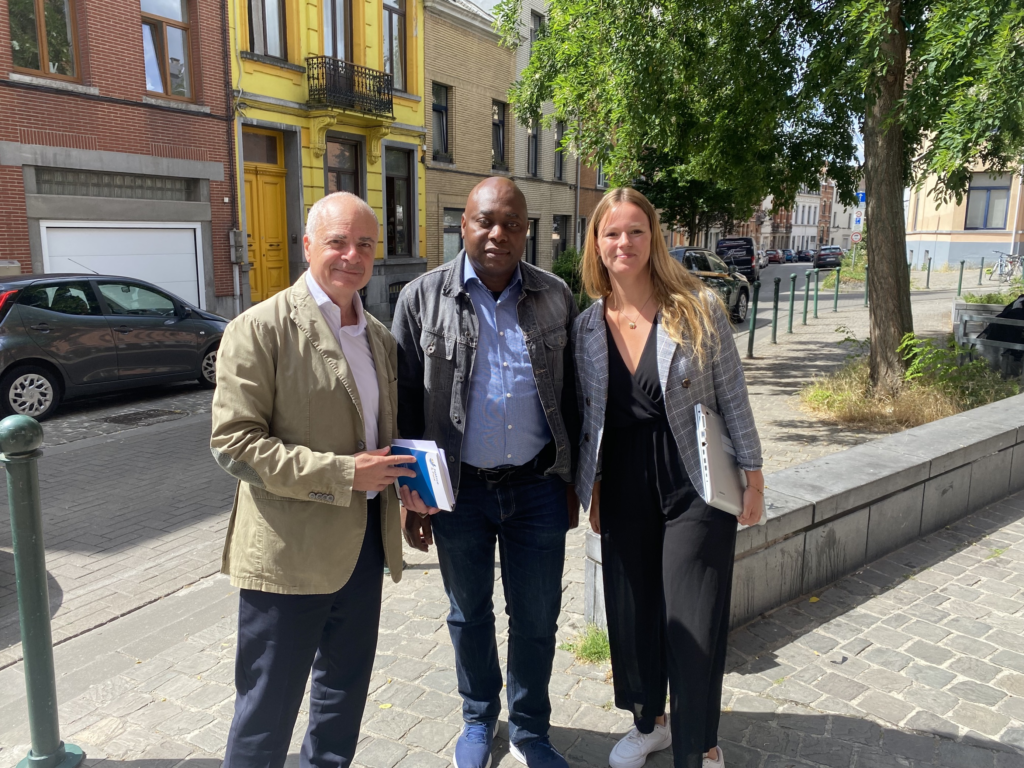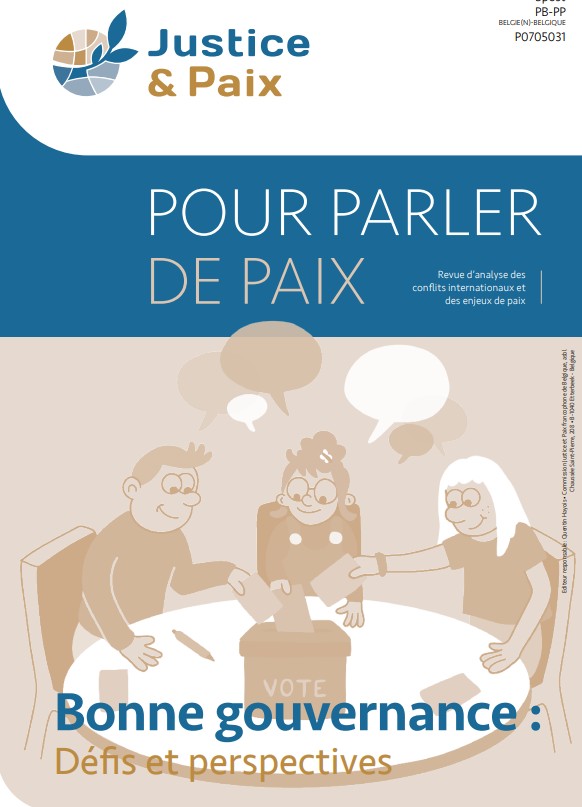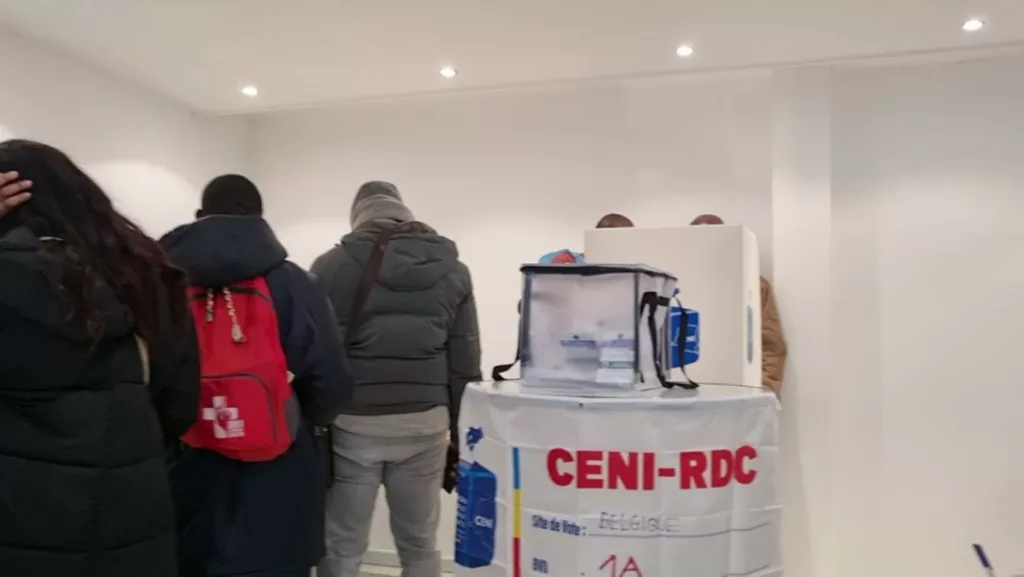In an era of geopolitical upheaval and global crises, mediation is proving to be an essential tool for achieving peace and justice. Pierre Hazan, with his rich career spanning from the United Nations to Africa and Europe, offers us a unique insight into current issues in mediation. In this article, we will explore his perspectives on the challenges of peace, the crucial place of justice and the role that Belgium and its civil society can play in this vast international scene.

Belgium, located in the heart of Europe, has always been a crossroads of ideas, cultures and conflicts. Today, as the world faces unprecedented challenges, figures like Pierre Hazan play a crucial role in mediating and finding lasting solutions to the conflicts tearing nations apart. His expertise, forged in the most sensitive conflict zones, places him at the heart of debates on justice, peace and the moral dilemmas that mediators must face. But beyond Mr. Hazan's expertise, there is a collective awareness that is needed: issues of peace and justice are intrinsically linked, and their resolution requires a global and multidimensional approach.
While the world is changing, with the rise of new powers and the questioning of existing international structures, Belgium, as a member of the international community, has a role to play. Belgian civil society, rich in its diverse communities, can make a significant contribution by supporting mediation efforts, strengthening ties with countries with which it has historical ties and promoting a culture of peace and tolerance. Belgian citizens, for their part, can get involved in different ways, whether through solidarity initiatives, advocacy or simply by staying informed and engaging in dialogue with their peers.
Ultimately, peace is not a matter of a few, but of all. In an interconnected world, conflict resolution in one region has repercussions in another. Belgium, with its rich heritage of mediation and dialogue, is well placed to contribute to this global effort for a more peaceful and just future.
Presentation by Pierre Hazan
Pierre Hazan is Senior Advisor to the United Nations Center for Humanitarian Dialogue in Geneva, one of the main organizations active in mediating armed conflicts. Since March 2022, it has beenfellowat the Robert-Bosch Academy – a German foundation based in Berlin. Pierre Hazan also worked atOffice of the United Nations High Commissioner for Human Rightsand collaborated with the United Nations in the Balkans. He has worked in numerous conflict zones, particularly in Africa, the Balkans, the Middle East and Europe.
His new book, published in September 2022, is entitledNegotiating with the devil, mediation in armed conflicts. In peace processes, a number of questions arise. This is what pushed our interlocutor to write this book on the moral limits that a mediator must set. Currently, he is working on the colonial past and the initiatives taken in Europe to confront this complicated past and its consequences for Afro-descendants.
- Most peace processes end in the use of amnesties for a range of crimes. Don't these often fuel a regime of impunity and frustration? Although it is possible to achieve a cessation of hostilities and war violence, can we rely on it for the consolidation of peace?
There is no magic formula in peace processes. One of the essential difficulties lies in the fact that we wish to build a rule of law which necessarily involves punishing people who have committed atrocities such as war crimes and crimes against humanity; and on the other hand, a peace process involves having people responsible for serious crimes around the table. Therefore, there is a tension between two goals: justice and peace, both of which are as necessary as the other. The challenge is to sacrifice neither peace nor justice, but on the contrary to articulate them as best as possible.
In a peace process, tension arises from the connection between the search for peace and justice that Pierre Hazan attempted to explore through his publications. Justice itself can be broken down into a set of satisfactions and needs such as:
1. the right to the truth highlighting the abuses that have been committed;
2. the right to reparation (financial, individual, community, symbolic, memorial, in the form of an apology);
3. guarantees of non-repetition;
4. the processes of demilitarization, demobilization and reintegration;
5. guarantees of protection of minorities;
6. the exercise of criminal justice, whether national, international or hybrid.
- In peace processes, criminal justice plays a special role. Is it, in itself, essential to reestablish lasting peace? Can it not itself be an obstacle to the construction of peace (victors' justice VS concerted justice)?
It is obvious that if we tell President Putin that he is going to find himself locked up in The Hague, that will not encourage him to negotiate, even if he wants to. The situation during the war in Bosnia and Herzegovina was different. Serbian President Slobodan Milošević was a key player at the Dayton Conference in December 1995 that ended the war. It was only much later, in the context of the Kosovo War in 1999, that Milosevic was indicted for war crimes and crimes against humanity and subsequently imprisoned and tried in The Hague.
Each situation is unique and there is no magic or pre-established formula. Take the example of Argentina. When Argentina became a democracy in 1983, leaders of the junta were put on trial, causing turmoil in the army which threatened to regain power. Faced with fears of a new putsch, the legal process against the soldiers accused of thousands of forced disappearances has stopped. This was subsequently followed by the creation of a Truth Commission, then an amnesty law, known as “end point”. It was only years later that a breach appeared in the process of impunity, with the issue of enforced disappearances constituting a continuing crime, allowing the alleged perpetrators to be prosecuted again. From then on, the wall of impunity collapsed.
In the space of twenty years, the Argentinian example shows that a society has successively used criminal justice processes, restorative justice, and an amnesty law before returning to criminal justice. This shows that a society is a living body, with its tensions and contradictions and that policies towards the past continue to evolve. Today, Argentina is the country that has tried the most perpetrators of crimes with the exception of Germany.
- Should the good mediator always consider negotiating with “the devil” (“proven” criminals or terrorist organizations)? What would be the limit in terms of concessions that should not be crossed during armed conflicts? What are the methods and means to avoid the risks of being exploited?
It is only a scrupulous analysis which will determine whether mediation is likely to obtain concrete results. The challenge is to identify with the belligerents what are the “entry points” which allow here or there to relieve the populations or to advance a peace process. Let's take concrete examples.
Between Russia and Ukraine, there is currently no question of a peace process. That said, the two parties had agreed on Ukrainian and Russian grain exports so that certain countries, mainly in the Horn of Africa, would not risk famine. This agreement, which was carried out by Turkish-UN mediation, was renewed twice, but Russia has – for the moment – put an end to it. We see it: the parties fight on the battlefield, but can at a given moment reach an agreement on a particular point, pragmatically judging that it is in their interest.
Mediators can find themselves facing very complex moral questions. For example, when policies of forced population displacement are implemented (“ethnic cleansing”), should the United Nations, the ICRC or other organizations facilitate population displacement to save lives, even if, in a way, they are playing into the hands of the ethnic purifiers and would find themselves unwillingly complicit in a war crime? Or should they better abstain at the risk of people dying?
Another terribly complex question is what can be sacrificed in the name of peace. Should mediators endorse, for example, peace agreements that sacrifice women's rights, as has happened in the Sahel and elsewhere? On the one hand, peace agreements save lives and allow people to resume social and economic life. On the other hand, the rights of a significant part of the population are denied. Is this acceptable?
The Dayton Accords that we mentioned above and which ended the war in Bosnia are another example of the moral challenges that can arise for mediators. These peace agreements gave birth to a dysfunctional state in the heart of Europe without resolving anything in substance. The war was frozen instead of providing real peace. Could we have done better? Should the Dayton Accords have been rewritten? These questions show the complexity of the dilemmas I explored in my latest book.
- What are the challenges and impact of establishing a transitional justice strategy in states still in conflict? We are thinking in particular of the transitional justice policy (adopted in January 2023) in the Democratic Republic of Congo?
As a reminder, transitional justice is a set of processes and mechanisms implemented to try to deal with the massive abuses that have been committed. These processes can take several forms and be both judicial and non-judicial. Transitional justice has several pillars such as the search for truth (including the famous truth commissions), legal proceedings, reparations, guarantees of non-repetitions and institutional reforms.
If we only talk about truth commissions, more than thirty of them have been created since the end of the Cold War – the best known being those in South Africa, Argentina, Chile, El Salvador, and Morocco. If certain truth and reconciliation commissions have been totally perverted (we can think of that of Gambia and Burundi), others have produced important results (as in South Africa in particular). Commissions are, by nature and because of their composition, linked to the society and political regimes that created them. It is therefore important that they are not used politically, with the risk that this will lead to results that are the opposite of those sought. To avoid this risk of exploitation, guarantees of independence and impartiality are needed which alone allow progress towards reconciliation in societies divided or emerging from a period of repression.
- The changing new world order seems to be in intense self-regulation (I don't understand that term here). After the covid-19 crisis and the war in Ukraine, has the moment to question the democratic structure of the United Nations arrived? Should we not expect a new global geopolitical reconfiguration with the rise of the “global South” and the involvement of China?
Let us note that the United Nations Security Council is paralyzed due to the opposition between the three Western permanent members (United States, France and Great Britain) and Russia and China. There have been many attempts to reform the Security Council to make it more democratic, but they have all failed. We find ourselves facing a Security Council that reflects the world of 1945, not that of 2023.
Today, due to international tensions, the United Nations is in the process of being marginalized in matters of peace and security. The very authority of the UN Secretary General is contested. Since 1945, norms were essentially shaped by a hegemonic Western world. This is no longer the case. We are in a multipolar world, where multilateralism is in decline. The big challenge is to rebuild a ethos global, but we are light years away. How can we shape common rules of the game in a world as fragmented, as divided as ours?
We are in a process of disintegration of the international order that we have known which has not yet led to the creation of another. This is a time of both opportunity and great danger. Arms budgets continue to climb. This period occasionally offers prospects for mediation. China, for example, led a mediation allowing Saudi Arabia and Iran to reconnect. We have also seen progress in the Middle East, even if the ongoing escalation – as we speak – risks calling them into question.
How do these peace issues concern us in Belgium? What can Belgian civil society and Belgian citizens do to support these issues from Belgium?
We live in an interdependent world. Pandemics, migration, natural resources and the climate challenge to take just a few examples, force us to think beyond our national borders. Cowering in a national space when the challenges are international makes little sense. It is important to be concrete, each to their own extent. Civil societies have a key role to play, because they have the ability to put issues on the agenda, to challenge politicians, to move the lines. Belgium also has a colonial history. Which gives it both links and a particular responsibility with certain countries in order to build a future together.
In conclusion, the journey and reflections of Pierre Hazan, Senior Advisor to the United Nations Center for Humanitarian Dialogue in Geneva, invite us to deep reflection on the complex process of seeing-judging-acting in the mediation of armed conflicts.
Observing the international context, it is undeniable that the challenges of peace and justice in a changing world are increasingly pressing. The tension between the search for peace and the quest for justice is evident, as Mr. Hazan points out. Mediation with actors perceived as “devils” or proven criminals may seem counterintuitive, but it may also be necessary to achieve stability and avoid further violence.
Transitional justice, a key element of peace processes, must be implemented with caution to avoid political exploitation. Examples of successes and failures show the importance of rigorous independence and impartiality to achieve expected results.
As for the ongoing global reconfiguration, it poses essential questions about the future of the United Nations and the role of civil society. Mediation standards and actors are evolving, and it is imperative to explore new avenues to resolve international conflicts effectively.
In Belgium, as citizens, we can play a role by staying informed, supporting civil society initiatives and encouraging dialogue with our own government to contribute to international peace efforts. The special ties between Belgium and certain countries give it a particular responsibility in this area, and it is crucial to use them constructively.
In short, the work of Pierre Hazan and the questions raised in this text remind us that peace and justice are complex objectives that require a nuanced approach adapted to the specific circumstances of each conflict. Seeing-Judging-Acting thus becomes an essential guide for those who strive to build a more peaceful and just world.
Louise Lesoil & Patrick Balemba.





